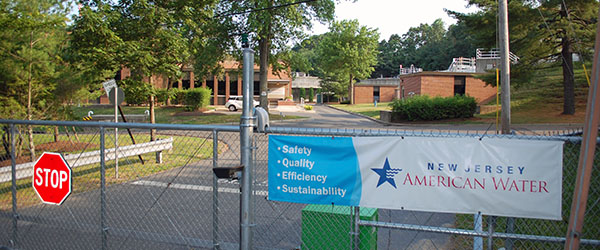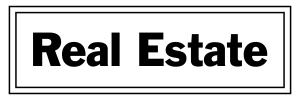Asbury, Interlaken draw water from Jumping Brook treatment plant, not Swimming River
Surrounding towns subject to boil-water advisory, draw from crippled treatment plant
Yesterday morning, a county-wide advisory for residents to boil water before consuming it was downgraded to just 22 towns.
Asbury Park and Interlaken were taken off the boil-water advisory list — although all the municipalities surrounding them still remain subject to the advisory: Loch Arbour, Allenhurst, Ocean Township and Neptune.
That’s because Asbury Park and Interlaken do not draw their drinking water from the Swimming River reservoir, where three water mains at the New Jersey American Water company treatment plant ruptured on Friday. However, the municipalities surrounding Asbury Park and Interlaken use the Swimming River reservoir and treatment plant.
Instead, Asbury Park and Interlaken draw their water from the Jumping Brook water treatment plant in Neptune [shown above], which does not use the Swimming River reservoir as a water source, according to New Jersey American Water spokesperson Peter Eschbach.
The Jumping Brook treatment plant uses the nearby Glendola reservoir in Wall as its primary water source, a water company employee at the Jumping Brook facility confirmed outside the gates Sunday morning. The employee added that the plant does have some other minor secondary water sources.
[In a post on the triCityNews Facebook page on Sunday afternoon, Neptune committeewoman Mary Beth Jahn said that most of Neptune — including Ocean Grove — also gets its water from the Jumping Brook plant. However, since a small portion of the township draws from the Swimming River, the water-boil advisory was put in effect throughout Neptune’s water supply system.
Jahn stated that “a very, very small portion of Neptune (northern West Neptune, on the Tinton Falls border) gets their water from the Swimming River treatment plant, and the rest of Neptune, including the Grove, get their water from the Jumping Brook plant. To avoid any possible threats of illness, the boil water advisory remains in effect until further notice.”]
As for Asbury Park and Interlaken, New Jersey American spokesperson Eschbach said both are at low elevations in the water supply system in Monmouth County and naturally have more pressure in their systems, which was another factor deeming the two municipalities safe to exclude from the boil-water advisory.
The boil-water advisory — as well as a ban on outdoor water usage which is still in effect county-wide — were put in place after the rupture of the Swimming River water mains caused a drop in pressure in the system.
The advisory was issued as a precaution because harmful bacteria can enter cracks in the system’s water lines with a reduction in pressure. When water lines are properly pressurized, bacteria is prevented from entering the water system through such cracks.
The boil-water advisory urges affected residents to boil water before human or pet consumption, or before uses that could result in ingestion, such as brushing teeth, washing vegetables or cleaning cuts or bruises. Officials are also urging all residents to restrict non-essential indoor water use.
Click here for a photo album of the Jumping Brook treatment plant and the Glendola reservoir on the Sun’s Facebook page.
For more information on the boil-water advisory, the outdoor water use ban and other related subjects, click here for the New Jersey American Water company website, or click here for the water company’s Facebook page.
Click here for the Sun story on the reduction of the water-boil advisory from a county-wide alert to 22 towns.












